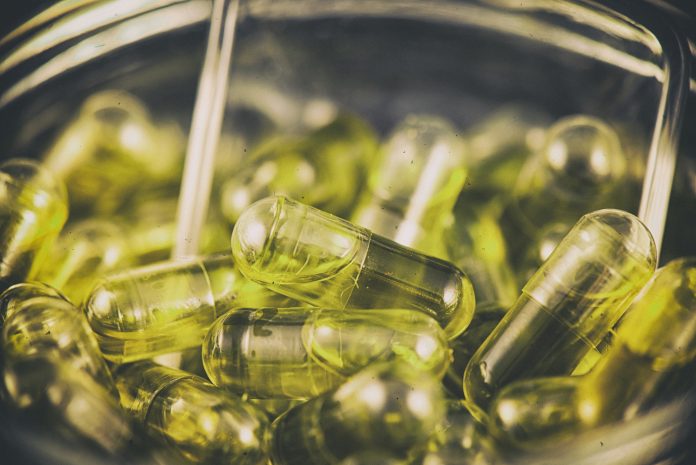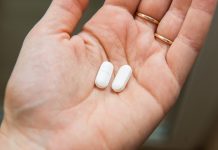Whether you see it as the “latest” health craze, have considered taking it yourself, or, have been relying on it for some time now, you may have asked: Can someone take too much CBD? Here, we find out
The simple answer – like almost any other substance is “yes.” But, unlike other substances and supplements, the “but’s“ that follow that answer might surprise you.
Here, Areyo Dadar from CBD Central explains.
First: What dose is considered “too much?”
As a disclaimer: There aren’t many studies done on toxic levels of CBD. That would be hard to justify from an ethics standpoint. However, according to a 2011 study, published in Current Drug Safety, the “toxic” dose of CBD falls somewhere around 20,000 mg of CBD, taken almost all at once.
To understand this, it’s important to note that the suggested starting dose for most conditions is somewhere around 5-20 mg per day. While studies have been done on dosages around 1500 mg per day, most tinctures contain between 100 and 1500 mg in an entire bottle.
That means that someone would need to ingest between 13 and 200 entire bottles of CBD tincture all at once, depending upon the concentration of CBD within the bottles. That’s a hard stretch to consider.
Simply put: when taken at recommended doses, or, even above recommended daily doses, the average CBD user does not need to worry about taking too much.
Is a “toxic” dose of CBD lethal?
The answer to this question might surprise you.
Unlike other substances, the toxic dose (20,000 mg of CBD), is not widely considered to be lethal. It may be possible – in the same study mentioned above in Current Drug Safety, lethal doses were achieved in monkeys; but, this would be unethical to study in humans.
The general consensus among professionals and even the World Health Organization, is that in even in extremely large doses, CBD is likely to cause extreme drowsiness, lethargy, upset stomach, nausea and diarrhoea and other unpleasant, disorienting side effects, not death.
Other interesting findings presented by the WHO include and derived from a 2011 study include:
- In large doses, CBD effects tumour cells, but has little effect in non-tumour cells.
- Limited research shows no effect on embryonic development.
- CBD may cause hormonal changes, yet, these findings are unclear.
- CBD has “no effect on a wide range of physiological and biochemical parameters or significant effects on animal behaviour unless extremely high doses are administered… in excess of 150 mg/kg iv as an acute dose or in excess of 30 mg/kg orally daily for 90 days.”
- CBD may be associated with drug interactions, but this is not yet clear.
Additionally, CBD is one of the only substances deemed by the WHO to have no major side effects or risk of dependency.
This does not mean that “testing” the toxic dose of CBD is a good idea. However, it does provide reassurance that CBD users can experiment with various doses to find one that is effective for their specific, individual needs.
CBD vs. THC
It is well-known that CBD varies greatly from its counterpart cannabinoid, THC.
THC is the cannabinoid responsible for the “high” associated with traditional marijuana use. Unlike CBD, it does have toxic, potentially lethal side effects.
A 2019 study found numerous serious side effects from the ingestion and inhalation of THC including:
- Hypotension
- Panic/anxiety
- Muscle spasms
- Respiratory depression and distress
- Reduced memory function
- Delirium
- Ataxia
- Increased risk of heart attack
- Lethargy
- Hyperkinesis
No official study has provided a lethal dose of THC, however, serious symptoms can arise starting anywhere above 7.5 mg/m2 inhaled in adults and between 5-300 mg when taken orally by pediatric patients.
A serious warning
Here’s the thing: pure CBD from trusted suppliers able to provide evidence of growing and harvesting conditions and practices along with independent test results of their products is deemed safe, as mentioned above while THC has a less proven track record.
Like other health supplements, there is currently no specific standard that a product must test against to be sold or distributed. This means that if CBD contains a higher level of THC than advertised (in most states, CBD must contain .3% THC or less to be “legal”), or, contains other unlabeled substances, it could be hazardous to your health.
Performing research and purchasing CBD from trusted sources is absolutely critical. Ask your chosen company to verify their claims by sending you a Certificate of Analysis, or COA. This is a document created by a third-party testing facility that can verify a product’s components and concentration while providing peace of mind during the purchasing process.
Now, enjoy CBD with ease
The bottom line is this: CBD, even in reasonably high doses is safe. Like anything, if ingested recklessly, it could have negative side effects, however, those side effects pale in comparison to other substances, even other cannabinoids.
Here’s to the – healthy, natural – CBD life.












I mistakenly swallowed a full teaspoon of CBC SALVE. The jar says it contains 4000 mg of CBD. Have I poisoned myself?~
what happen to you now? haha!
Well, how did it turn out?
It won’t do anything you may get a slight buzz but that’s if it contains any thc
Btw I’m a daily smoker of thc and use cbd for t breaks